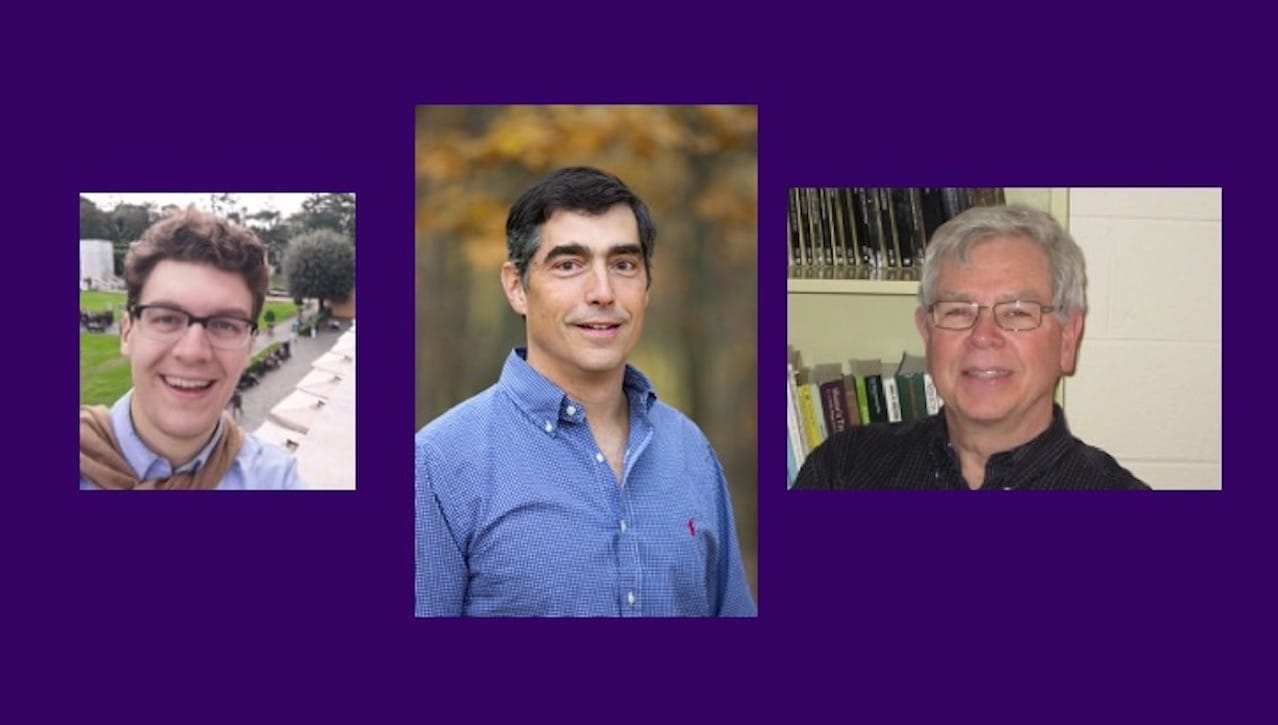Schemel Forum to Begin Courses in Multiple Formats

The University of Scranton’s Schemel Forum returns this fall with three evening courses that will be delivered both in-person and remotely.
Covering a range of stimulating and timely topics, the courses will be taught in six weekly sessions from 6 to 7:15 p.m. in room 305 of the University’s Weinberg Memorial Library, with Zoom links provided via email for those who would like to attend remotely.
The courses are free for University students, faculty, staff and Schemel Forum members. For non-members, the in-person fee is $75 per individual and $125 per couple, and $60 for remote-only.
Paul Sampson, Ph.D., assistant professor of history at the University, will present “Trust the Science? A Political History of Science,” Thursday evenings Sept. 9, 16, 23 and 30 and Oct. 7 and 14.
Sampson will use the course to examine how conventional scientific views on subjects like climate change, vaccinations, the theory of evolution and even the shape of the earth have become controversial among some in contemporary American society by linking these ideas to the history of modern science, which emerged as an attempt to avoid political and religious disagreement by viewing nature with “objectivity.”
Among other things, the course will look at the creationist vs. geological conceptions of Earth’s origins, debates surrounding Darwin’s theory of evolution and the rise and fall of eugenics practices to get a sense of how political and religious concerns have always played a role in scientific work.
The goal, Sampson said, is to show how scientific ideas and practices have a history, and to better understand how that history and the place of scientists within the wider society continues to influence and inform scientific work.
“This course is essentially a condensed version of the History of Science course I teach at the University,” Sampson said. “The standard version of the history of science that most people were taught begins in Europe around 1600 and focuses on ‘geniuses’ who made astounding discoveries and cleared away ‘superstitious’ ideas about the nature and the universe. What I try to do in my course is to show that the story is much more complicated than that. Science has never been exclusive to Europe; it has always involved large networks of people rather than lone ‘geniuses,’ and there has always been a lot of interaction between science, religion and politics.”
Sampson said he’s very excited to be participating in the Schemel Forum.
“I am a strong believer in making history public and accessible, and I am glad that the University is helping to make that happen,” he said. “I am also looking forward to continuing some of the conversations that I started with my students and hearing the thoughts of the lifelong learners here in Scranton.”
Joe Kraus, Ph.D., professor and chair of the University’s Department of English and Theatre and president of MELUS (Society for the Study of Multi-Ethnic Literature of the United States), will present the course, “Invisible Men: Novels by Ralph Ellison and Viet Thanh Nguyen,” Monday evenings Sept. 13, 20 and 27 and Oct. 4, 18 and 25.
During the sessions, Kraus and the class will explore W.E.B. DuBois’s concept of double-consciousness and its adaptation into Ralph Ellison’s concept of invisibility in his iconic novel, “Invisible Man.” From there, the class will read Viet Thanh Nguyen’s “The Sympathizer” to see how those concepts were reworked in an Asian-American context.
Kevin Nordberg, Ph.D., professor emeritus of philosophy and Latin American studies at the University, will present “Social and Moral Issues in Information Technology” Wednesday evenings Oct. 6, 13, 20 and 27 and Nov. 3 and 10.
Throughout the course, Nordberg will cover a number of relevant technological issues, including intellectual property, software and music video piracy, liability for defective software, privacy, free speech, facial recognition and computer crime. Among the questions that will be posed -- Is the internet used as a distraction technology rather than an informative technology?
To register for the courses, contact Alicen Morrison, Schemel Forum assistant, at 570-941-6206 or alicen.morrison@scranton.edu. To pay by credit card over the phone, contact Kym Fetsko at 570-941-7816, or to pay online, visit: www.scranton.edu/schemelforum.
For more information on Schemel Forum programs and memberships, contact Sondra Myers, Schemel Forum director, at 570-941-4089 or sondra.myers@scranton.edu.






